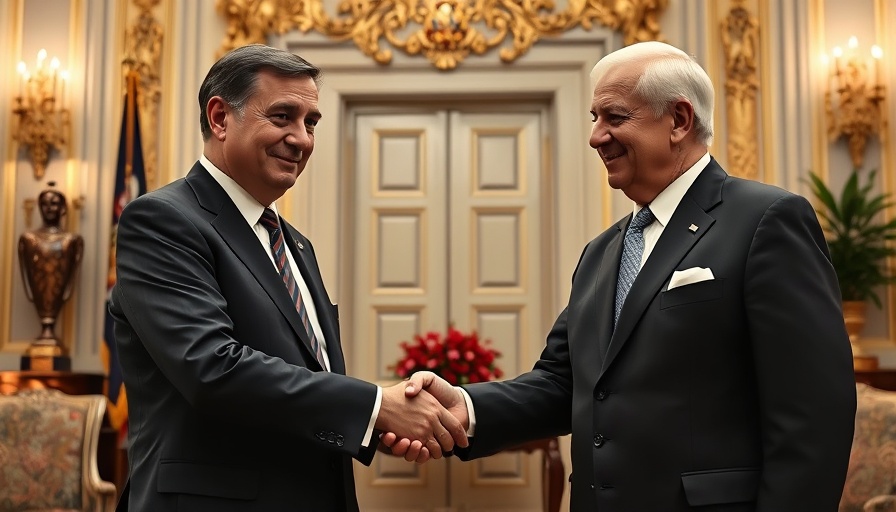
The Growing Partnership Between Central African Republic and Russia
As the presidential election gears up in nine months for the Central African Republic (CAR), President Faustin-Archange Touadéra is actively seeking new alliances to bolster his government. This time, he is turning to Russia for support across military, mining, and political fronts. This strategic pivot is not merely an act of desperation; it reflects deeper geopolitical shifts in the region that have begun to distance Bangui from its traditional Western allies.
Unpacking the Military Collaboration
The talks between Touadéra and Russian President Vladimir Putin signify a potential increase in military cooperation between CAR and Russia. Since 2017, Russian engagement has included the deployment of military instructors and the expected establishment of military bases. Such actions raise eyebrows internationally but are pursued by CAR in light of persistent security threats from political rebels and terrorist groups operating in the region.
Additionally, the cooperation extends to the infamous Wagner Group, a paramilitary organization closely associated with the Kremlin, which has strengthened its presence in CAR. This paramilitary group has been pivotal in maintaining relative stability, suggesting that Moscow's involvement is perceived as necessary by some segments of Bangui's political structure to ensure governance and security.
Economic Gains: A Strategic Overview
Beyond military endeavors, the economic partnership is burgeoning. Trade between the CAR and Russia has reportedly seen significant growth, with increasing discussions around resource extraction and technology trades. Touadéra’s administration is particularly keen on inviting Russian investments into agriculture and mineral resources. The CAR is endowed with rich deposits of gold, diamonds, and other minerals, making it an attractive playground for international investment.
However, grain imports from Russia have also formed a crucial lifeline for food security in the CAR, underscoring the multi-faceted nature of their partnership. With approximately 5.6 million citizens living amidst vast natural wealth but enduring poverty, the government sees strategically engaging Russia as a pathway to development.
Western Warnings and Regional Implications
Despite the attraction of this Russian partnership, the shift has spurred concern among CAR's Western partners, who may see it as a move towards increased authoritarianism rather than establishing real democratic governance. Organizations that prioritize human rights may view the collaboration with skepticism, particularly given the notorious history of exploitation in regions dependent on foreign powers.
Furthermore, as other nations in the region contemplate similar partnerships, there lies a vast potential for changes in political dynamics within Central and Southern Africa, and how they relate with global powers, such as the U.S. and European Union.
Charting a New Path Forward
The move towards Russia represents not just a change in foreign policy for CAR but also fosters discussions on how local governance and societal structures might evolve. The intent behind this partnership may echo in broader conversations about African self-determination regarding political and economic strategies in the face of foreign involvement. This newfound alliance also reflects a growing assertion for countries like CAR to leverage their resources to extract favorable terms while considering the historical context of colonialism and exploitation, thereby aligning with notions of decolonization and Afrocentrism.
The evolving relationships raise pertinent questions: Will Russia provide a sustainable development partnership for CAR? What implications will this have on democracy, governance, and human rights moving forward? As the CAR navigates these turbulent waters, the international community will be keeping a watchful eye on how these relationships unfold.
A Call for Engaged Policy Discourse
It is critical for professionals and stakeholders interested in African governance and international relations to understand and engage in the dialogue surrounding these developments. The multidimensional partnerships being forged require scrutiny, insight, and advocacy for progressive outcomes that prioritize governance, human rights, and sustainable economic growth. Engaging in policy discussions within the CAR context may provide valuable lessons in fostering collective empowerment and growth across the continent. Now, more than ever, informed dialogue is essential to ensure that strategic partnerships align with the advancement of democracy and human rights in African nations.
 Add Row
Add Row  Add
Add 




Write A Comment